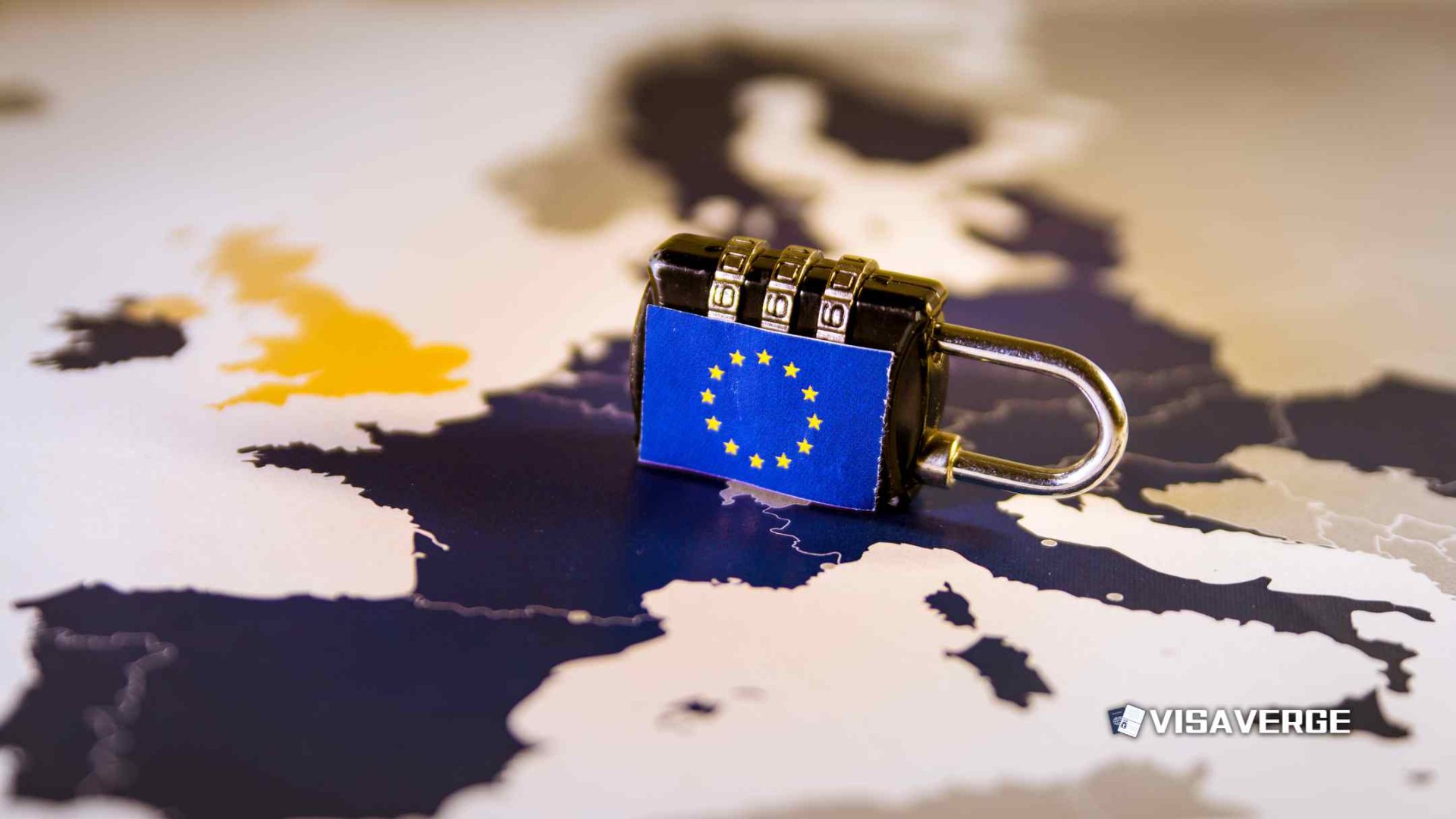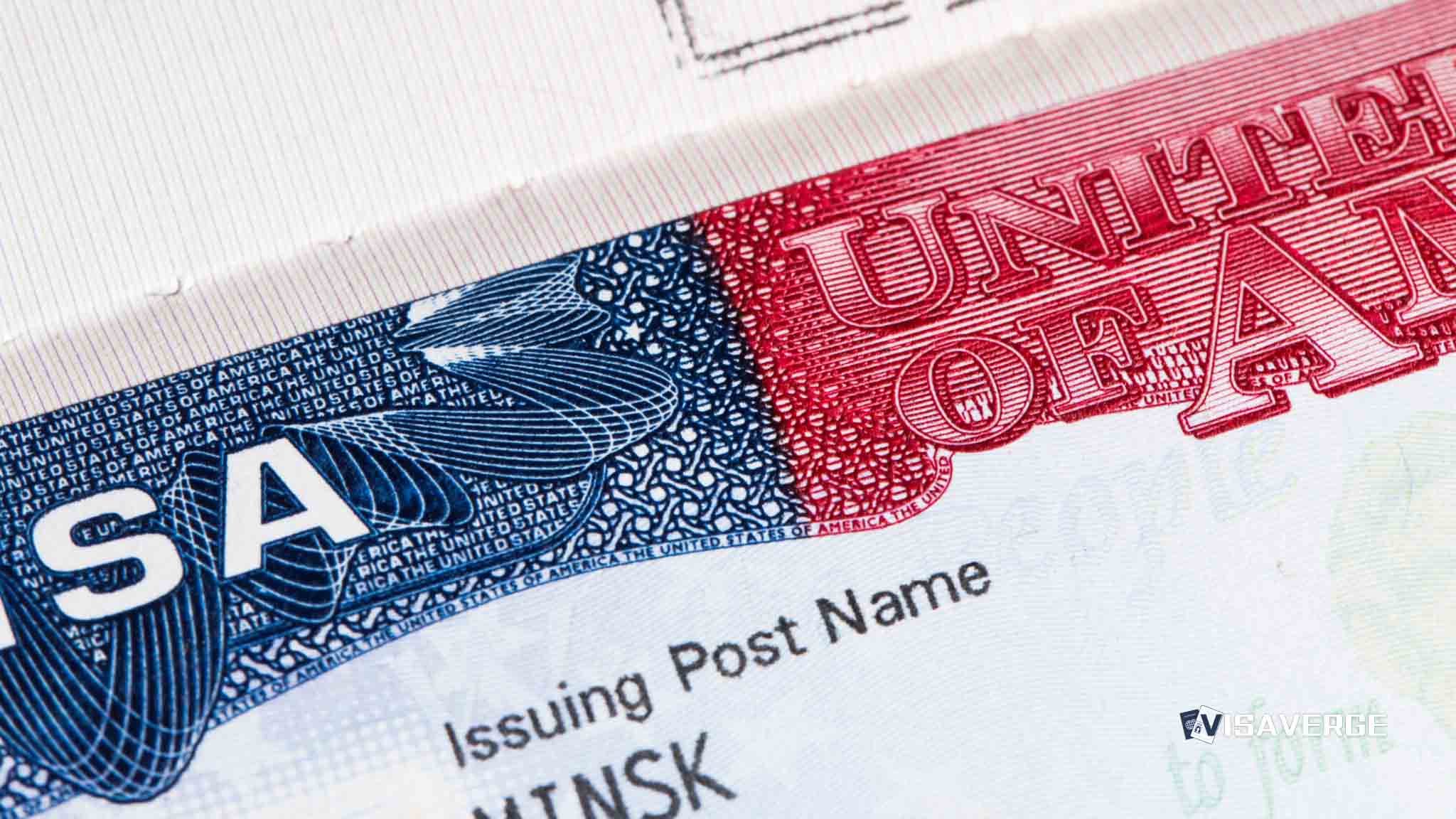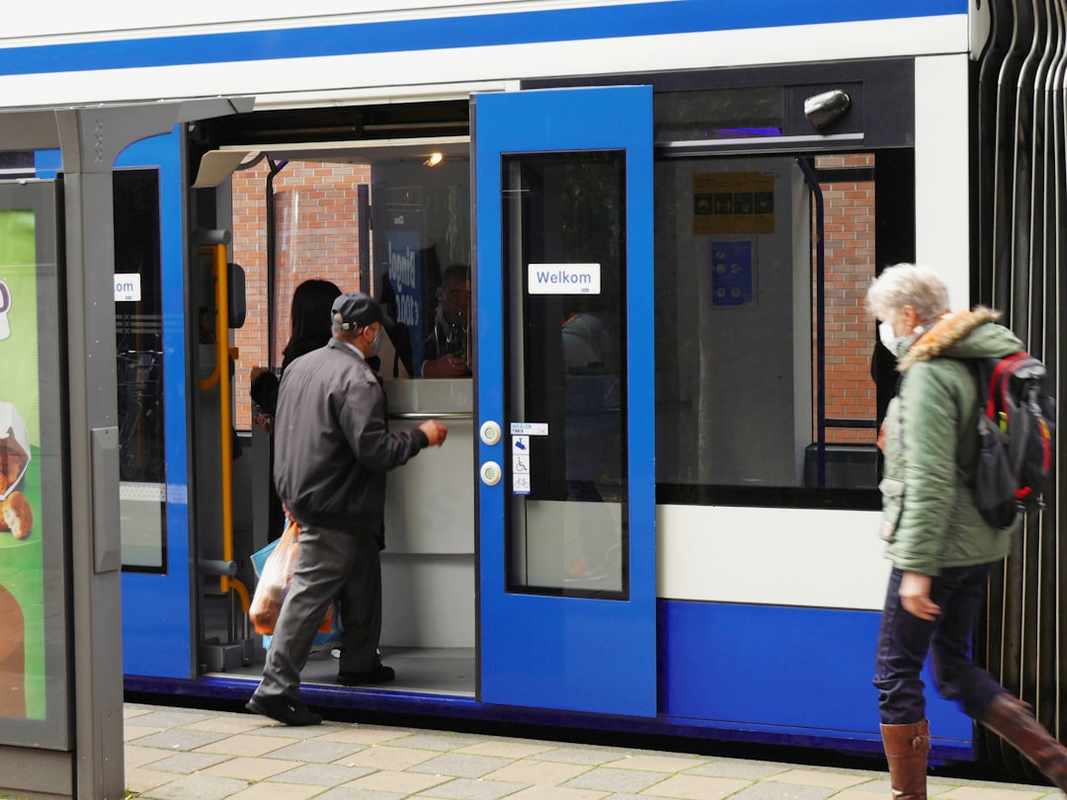Key Takeaways
• Kazakhstan’s Neo Nomad Visa B12-1 allows remote workers to stay one year, renewable, with a $3,000 monthly income requirement.
• The visa attracts diverse global digital nomads, contributing $7.05 million annually per 500 nomads to Kazakhstan’s economy.
• Applications process swiftly in 5 business days; family members can join but cannot work or perform religious activities.
Kazakhstan’s Neo Nomad Visa: Analytical Review of Policy, Impact, and Trends
Purpose and Scope

This analysis examines Kazakhstan’s Neo Nomad Visa, focusing on its purpose, requirements, application process, and the broader impact on the country’s economy and immigration landscape. The recent approval of the Neo Nomad Visa for Jorge Rosa Filho, an EU citizen, highlights the growing appeal of Kazakhstan 🇰🇿 as a destination for digital nomads. This review draws on official statements, program data, and expert commentary to present a clear, evidence-based picture of the Neo Nomad Visa’s role in Kazakhstan’s evolving immigration policy.
Methodology
This content is based on official government releases, statements from Kazakh officials, and reports from recognized immigration experts. It synthesizes data from the Ministry of Tourism and Sports, interviews with visa recipients, and analysis from leading immigration consultancies. The approach includes:
- Reviewing official policy documents and visa requirements
- Summarizing application procedures and timelines
- Presenting economic impact estimates from government sources
- Comparing Kazakhstan’s Neo Nomad Visa to other visa categories and international trends
- Integrating expert opinions and direct quotes
- Describing visual data trends and patterns for clarity
Key Findings
- The Neo Nomad Visa (B12-1) allows foreign nationals to live in Kazakhstan 🇰🇿 for up to one year while working remotely for non-Kazakhstani employers.
- The program is designed to attract digital professionals and remote workers, with streamlined application processes and clear eligibility criteria.
- Recent approvals, such as that of Jorge Rosa Filho, demonstrate the program’s growing international reach and operational efficiency.
- The economic impact is significant, with every 500 digital nomads expected to contribute about 3.6 billion tenge ($7.05 million) to the national budget.
- Kazakhstan 🇰🇿 is the first country in Central Asia to launch a digital nomad visa, setting a regional precedent.
- The Neo Nomad Visa is part of a broader strategy that includes other visa categories for skilled professionals and IT specialists.
- The program’s success is supported by positive feedback from recipients and strong government commitment to digital transformation.
Data Presentation and Visual Descriptions
To help readers understand the scope and impact of the Neo Nomad Visa, this section presents key data points and describes visual trends.
Visa Recipients by Country (as of June 2025):
– United Kingdom 🇬🇧
– United States 🇺🇸
– France 🇫🇷
– Poland 🇵🇱
– South Korea 🇰🇷
– United Arab Emirates 🇦🇪
– Thailand 🇹🇭
– European Union (Jorge Rosa Filho)
Visual Description: Imagine a bar chart with each country on the x-axis and the number of visa recipients on the y-axis. The chart shows a steady increase in the diversity of countries represented, with the United Kingdom 🇬🇧 and United States 🇺🇸 leading, followed by a growing number of recipients from Asia and Europe.
Economic Impact Estimate:
– 500 digital nomads = 3.6 billion tenge ($7.05 million) in annual contribution
Visual Description: Picture a pie chart showing how digital nomads’ spending is distributed: housing (largest slice), food and dining, travel within Kazakhstan 🇰🇿, and local goods/services. The chart highlights that most spending benefits local businesses and the hospitality sector.
Application Processing Time:
– Average: 5 business days
Visual Description: A timeline graphic with key steps: application submission, document review, approval, and visa issuance. The timeline emphasizes the short processing window, making Kazakhstan 🇰🇿 competitive with other digital nomad destinations.
Comparisons, Trends, and Patterns
Kazakhstan’s Neo Nomad Visa vs. Other Global Digital Nomad Visas
Kazakhstan 🇰🇿 stands out as the first Central Asian country to offer a digital nomad visa. Compared to similar programs in Europe and Southeast Asia, Kazakhstan’s Neo Nomad Visa features:
- Fast processing: Approval in about five business days, faster than many European programs.
- Clear income requirement: Applicants must show a stable monthly income of at least $3,000, similar to requirements in countries like Portugal and Estonia.
- No local employment: Holders cannot work for Kazakhstani companies, aligning with global best practices to protect local job markets.
- Family inclusion: Family members can join, though they cannot work or engage in religious activities.
Trends in Recipient Demographics
The program began with recipients from the United Kingdom 🇬🇧 and the United States 🇺🇸, then expanded to include nationals from Asia and the European Union. This pattern suggests growing international awareness and appeal. The recent approval for Jorge Rosa Filho, an EU citizen, signals Kazakhstan’s success in attracting a diverse pool of digital professionals.
Patterns in Application Experience
Feedback from recipients like Jorge Rosa Filho highlights:
- Efficient consular service: Filho praised the Kazakh Consulate in Lisbon for its high-quality, responsive service.
- Streamlined documentation: The process requires standard documents—proof of income, health insurance, and a criminal record certificate—without excessive bureaucracy for citizens of 48 developed countries.
- Positive local environment: Recipients cite Kazakhstan’s hospitality, safety, and dynamic development as key attractions.
Evidence-Based Conclusions
Kazakhstan’s Neo Nomad Visa is achieving its core objectives:
- Attracting global talent: The program is drawing digital professionals from a widening range of countries.
- Boosting the economy: Official estimates confirm substantial economic benefits from digital nomad spending.
- Enhancing Kazakhstan’s image: The country is positioning itself as a modern, open, and innovative destination in Central Asia.
Policy Details and Requirements
Neo Nomad Visa (B12-1):
- Purpose: To allow foreign nationals to live in Kazakhstan 🇰🇿 for up to one year while working remotely for non-Kazakhstani employers.
- Eligibility:
- Proof of stable monthly income of at least $3,000 (bank statements, tax documents)
- Valid health insurance for the entire stay
- Certificate of no criminal record from the applicant’s country of residence
- No invitation letter required for citizens of 48 developed countries; others need a local host
- Validity: 1 year, renewable for an additional year without leaving Kazakhstan 🇰🇿
- Family: Spouses and children can apply for dependent visas (no work or religious activity allowed)
- Application Fee: About $220 USD
Application Process:
- Schedule an appointment at a Kazakhstan 🇰🇿 consulate
- Submit required documents and application form (official forms can be found on the Kazakhstan eVisa portal)
- Pay the visa fee
- Wait for approval (typically 5 business days)
- Enter Kazakhstan 🇰🇿 and begin the one-year stay
Other Visa Categories for Skilled Professionals
Kazakhstan 🇰🇿 has introduced two additional visa types to attract global talent:
Digital Nomad Visa (B9-1):
– Launched March 2025 for IT specialists seeking permanent residence
– Valid for 10 years
– No income or savings requirement
– Application can be completed remotely
Permanent Residence Visa (B9):
– Introduced November 2024 for skilled professionals in medicine, science, innovation, education, and creative industries
– Valid for 90 days, with a pathway to permanent residency
Strategic Vision and Official Statements
Kazakhstan’s visa reforms are part of a broader effort to build a knowledge-based economy. Deputy Foreign Minister Roman Vassilenko stated, “Mobility fuels innovation, and diversity drives progress.” The government’s focus is on “smart visa solutions, open skies policies, and investment-friendly frameworks” to attract international expertise.
Vassilenko also emphasized Kazakhstan’s unique position: “For nomads, movement was not just a necessity but a way of life. Today, in an era defined by digital transformation and global networks, mobility extends beyond physical borders. The modern nomad of the 21st century is not just a traveler but also an innovator, entrepreneur, and creator. And Kazakhstan is ready to welcome them warmly.”
Historical Context and Program Development
Kazakhstan 🇰🇿 has led Central Asia in digital nomad policy innovation. The Neo Nomad Visa’s rollout has been gradual but steady:
- First recipient: British citizen in the energy sector
- By January 2025: Recipients from South Korea 🇰🇷 and Singapore 🇸🇬
- By March 2025: Five more recipients (three from the United States 🇺🇸, one from the United Kingdom 🇬🇧, one from Latvia 🇱🇻)
- By June 2025: Citizens from at least eight countries, including the European Union, have received the visa
Expert Analysis and Future Outlook
Hannah In-Chan, Director at Newland Chase Advisory, notes that “Kazakhstan’s updated visa framework underscores the country’s commitment to nurturing innovation and attracting a mobile, digital-first workforce.” She recommends that organizations considering expansion into Central Asia or hiring remote talent monitor these developments and assess eligibility based on employee profiles.
Analysis from VisaVerge.com suggests that Kazakhstan’s simplified processes and clear eligibility requirements mark a shift toward more accessible immigration pathways for highly skilled individuals. This could make Kazakhstan 🇰🇿 more competitive in the global race for talent.
Tax Implications
Currently, Kazakhstan 🇰🇿 taxes non-residents only on income earned within the country. Residents are taxed on worldwide income at a flat rate of 10%. There is no specific mention of tax rules for digital nomads, but this may evolve as the program grows.
Limitations and Considerations
- Tax clarity: The lack of specific tax guidance for digital nomads could create uncertainty for some applicants.
- Local employment restrictions: Visa holders cannot work for Kazakhstani employers, which may limit integration for some professionals.
- Family restrictions: Dependents cannot work or engage in religious activities, which could affect family decisions.
- Program scale: While the number of recipients is growing, the program is still in its early stages, so long-term impacts remain to be seen.
Actionable Takeaways
- For digital nomads: Kazakhstan 🇰🇿 offers a fast, clear pathway to live and work remotely for up to two years, with a welcoming environment and growing international community.
- For employers: The Neo Nomad Visa provides a legal framework for remote work arrangements in Central Asia, but companies should monitor tax and compliance developments.
- For families: The visa allows dependents to join, but with restrictions on work and religious activities.
- For policymakers: Kazakhstan’s approach could serve as a model for other countries in the region seeking to attract global talent.
Next Steps
- Interested applicants should review the official Kazakhstan eVisa portal for up-to-date requirements and forms.
- Employers should consult with immigration advisors to ensure compliance with local laws and tax regulations.
- Families should consider the restrictions on dependent activities before applying.
Conclusion
Kazakhstan’s Neo Nomad Visa is a forward-looking policy that positions the country as a hub for digital professionals and remote workers. The program’s efficient processes, clear requirements, and positive recipient experiences—such as those shared by Jorge Rosa Filho—demonstrate Kazakhstan’s readiness to welcome a new generation of global talent. As the program matures, it will be important to address tax clarity and expand support for families, but the early results are promising. Kazakhstan 🇰🇿 is now firmly on the map as a destination for digital nomads seeking new opportunities in Central Asia.
For more detailed analysis and ongoing updates on Kazakhstan’s immigration policies, readers can refer to VisaVerge.com, which provides authoritative coverage of global mobility trends and visa developments.
Learn Today
Neo Nomad Visa → A Kazakhstan visa allowing remote workers to live up to one year while working for non-Kazakh employers.
Digital Nomad → A person who works remotely using technology, often traveling while maintaining a job abroad.
Application Processing Time → The average duration, five business days, for visa approval after submitting required documents.
Income Requirement → Applicants must prove a stable monthly income of at least $3,000 to qualify for the visa.
Dependent Visa → A visa granted to family members of the visa holder with restrictions on employment and religious activities.
This Article in a Nutshell
Kazakhstan’s Neo Nomad Visa draws international remote workers with fast approval, clear income criteria, and significant economic impact. It enables one-year stays for digital nomads working abroad, enhancing Kazakhstan’s image as an innovative, open Central Asian destination. Growing global interest signals a promising future for this groundbreaking immigration policy.
— By VisaVerge.com








